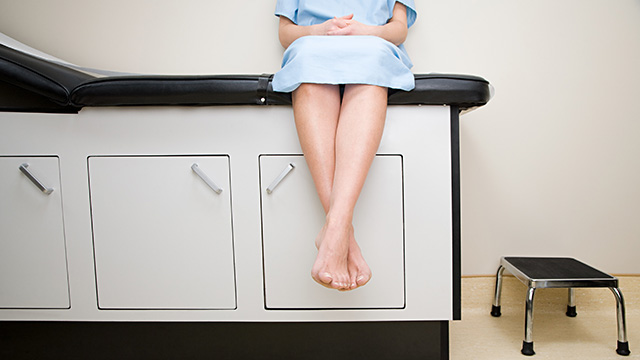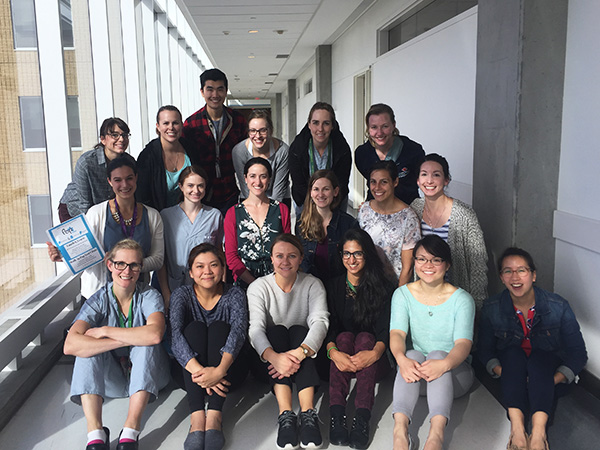
Women can access the free pap clinic service with their ID and Alberta Health Care Card.
Cervical cancer is the only gynecological cancer than can be effectively prevented, screened for and treated at the precancerous stage thanks to pap screening programs and the HPV vaccine.
Unfortunately, many women are not taking advantage of these health services. About 10 per cent of Canadian women have never had a pap test, and 30 per cent have not been screened in the last three years, as recommended.
"Cervical cancer often presents at a late stage of disease if you aren't screened for it. We want to raise awareness on how to prevent it," said resident Jennifer Mateshaytis. "There are things you can do, so we want women to have all of the knowledge they need."
Mateshaytis and fellow University of Alberta obstetric and gynecology residents aim to increase the number of women screening for cervical cancer by running a free walk-in pap clinic on Wednesday, Oct. 11 from 2 p.m. to 5 p.m. at the Royal Alexandra Hospital. The initiative is part of national Cervical Cancer Awareness Week, which runs from October 16 to 20, 2017. All you need to bring to the pap clinic is your ID and Alberta Health Care Card.
The residents will also be doing lunch and learn sessions with allied health services at the Royal Alexandra Hospital and medical students at the U of A, to raise awareness within the medical profession.
"We are trying to advocate for our patients in two ways," said resident Allison Edwards. "The lectures to the allied health staff and medical students are intended to bring the importance of cervical cancer screening to the forefront for current and future health-care providers. The pap test clinic is providing an opportunity for women to access screening."

UAlberta OB/GYN residents are running this free walk-in pap clinic.
In countries that do not have a screening program in place, cervical cancer remains the second most common cancer in women, and the third cause of cancer-related death in women.
"I'm on my gynecological oncology rotation and have seen women who unfortunately, for whatever reason, did not get screened and received late-stage diagnoses of cervical cancer," said Edwards. "It's one of the only gynecological cancers we have a screening test for. Because it's one of the few opportunities for prevention of cancer in our field, we find it extremely important."
With proper screening, precancerous lesions in the cervix can be treated and patients may not go on to develop cancer. If they do, it can be more easily treated at an earlier stage and they are are less likely to have a recurrence.
Screening is not the only way to prevent cervical cancer-the Human Papillomavirus (HPV) vaccine is an effective way to prevent it as well. HPV is a sexually transmitted virus with many types. HPV 16 and HPV 18 account for approximately 70 per cent of cervical cancers worldwide. The infection is extremely common; 75 per cent of sexually active men and women will have at least one HPV infection in their lifetime. The Canadian Cancer Society recommends that all females between ages nine and 45, and all males between ages nine and 26, should be vaccinated.
The residents are active in raising awareness every year during Cervical Cancer Awareness Week. More information about the initiative is available here: http://fmwc.ca/about-pap-test-campaign/.
Event details:
Wednesday, October 11, 2 - 5 p.m.
Colposcopy Clinic
Ground Floor of the Robbins Pavilion
Lois Hole Hospital for Women at the Royal Alexandra Hospital
https://fmwc.ca/clinic/university-of-alberta-residents-clinic/
Walk-in appointments available.